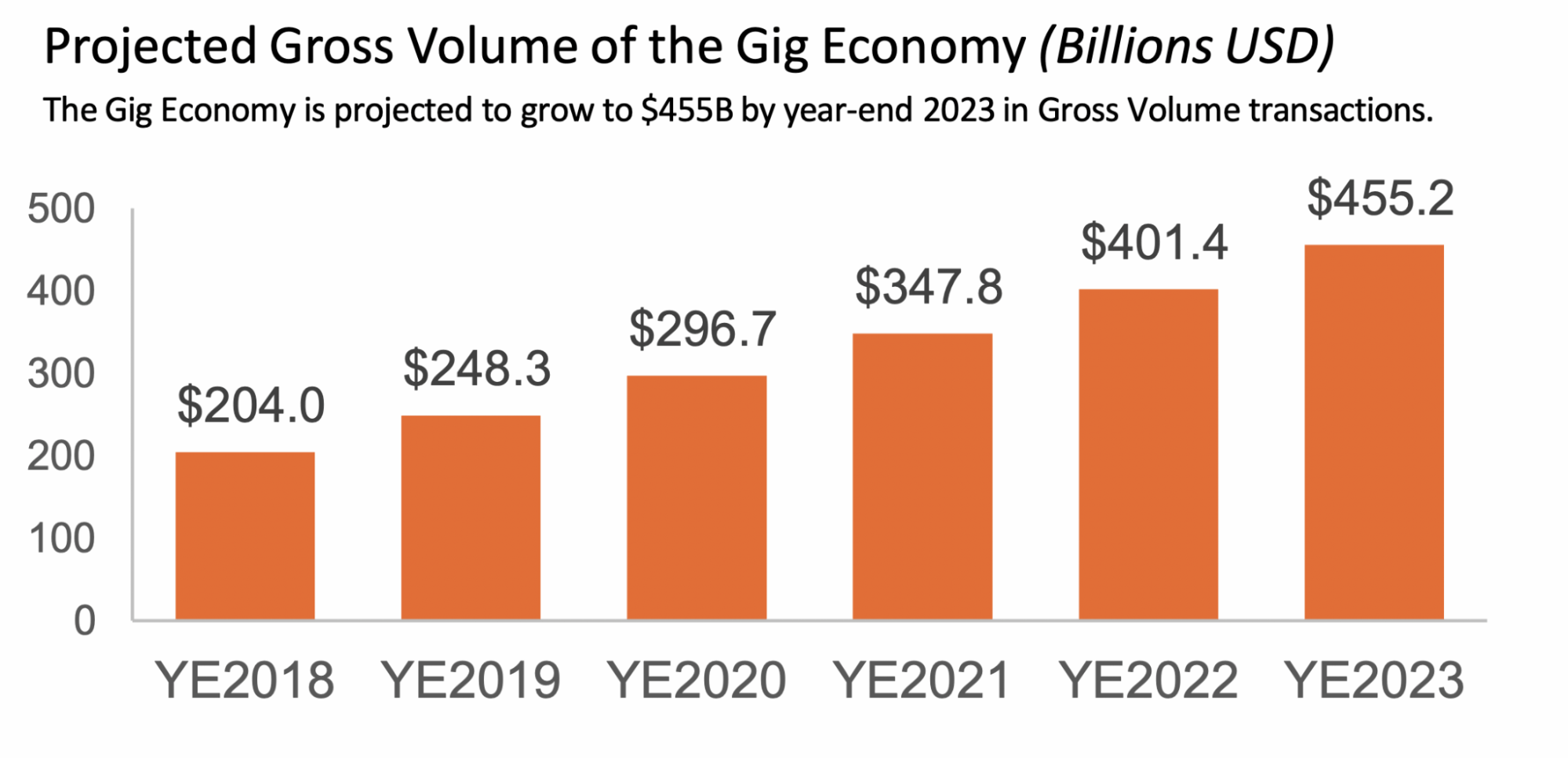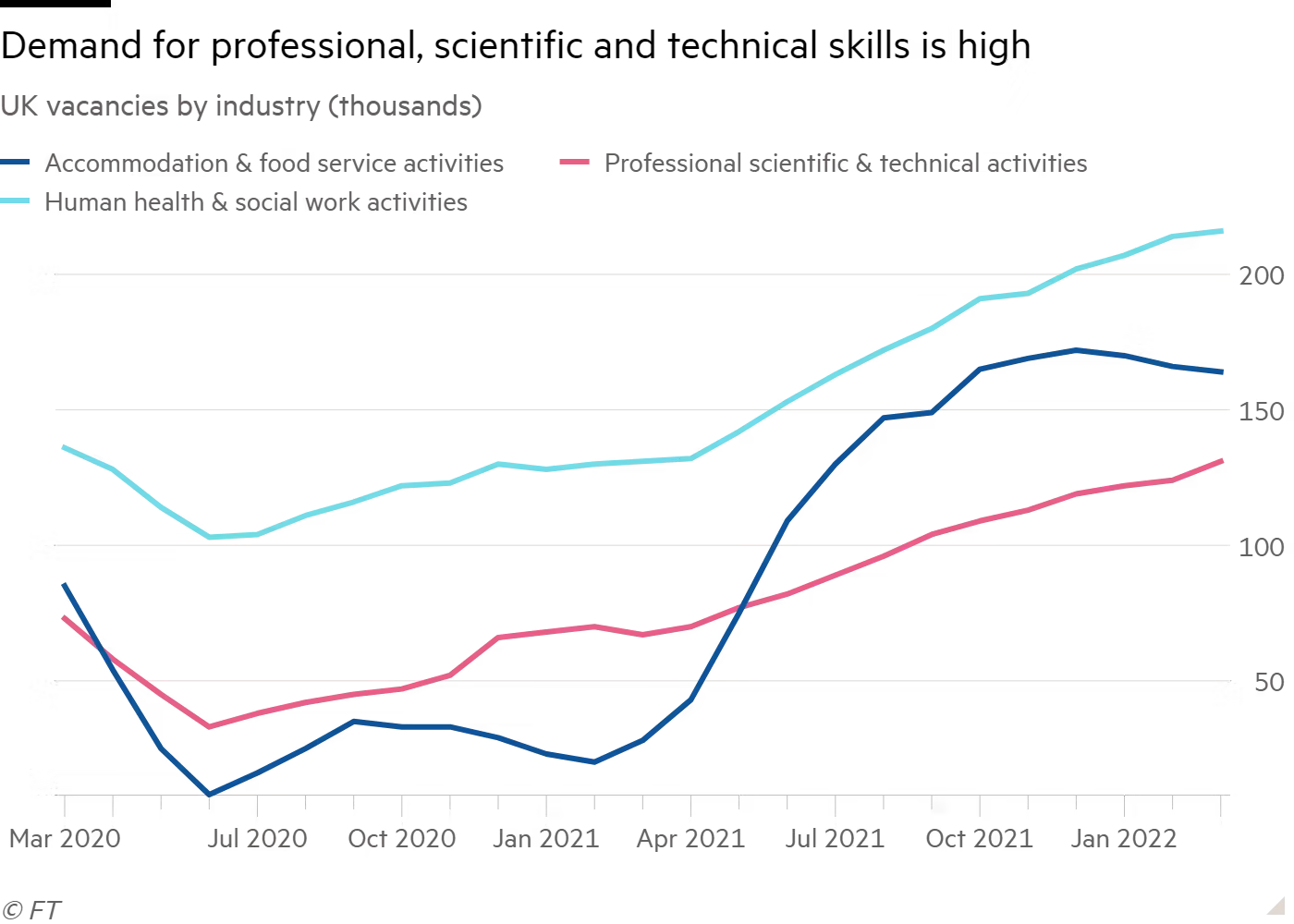The labor crisis has taken its toll on the startup market. After 47 million Americans quit their jobs in 2021, small business leaders are facing a national skill shortage.
With more competition than ever before, the post-pandemic online playing field is ripe with rivals, yet stagnant with team players. While the e-commerce industry may have grown by a third in just two years, a global labor shortage is sure to put many entrepreneurial ventures out of business if company leaders don’t act fast.
Hiring Trends to Counteract Today’s Staffing Challenges
This is where the gig economy comes into play. On the back of flexible working trends, a digital shift and a global lockdown, more Americans than ever before have become their own boss. Switching from that nine-to-five corporate routine to a remote alternative, 12% of the U.S. workforce joined the gig economy in 2020 alone.
In fact, experts predict that over half of corporate America could switch to a gig economy by 2027 as flexible working schedules become more desirable.
(Image Source: Mastercard Newsroom)
As we step into a flexible future, the gig economy is expected to be worth just under $500 billion by 2023.
The question is, can low-budget startup leaders benefit from its success? Read on as we delve deeper into the global labor crisis and divulge why the gig economy could be the answer to a small business owner’s prayers.
What is gig work?
Defined by Investopedia, “the gig economy is based on flexible, temporary, or freelance jobs, often involving connecting with clients or customers through an online platform.”
In a gig economy, participants are their own bosses. Instead of committing to just one position, gig workers manage multiple projects for multiple companies at the same time. Not only does this benefit the gig worker as they get full control over their hours, workloads and pay, but startup leaders who cannot afford to hire full-time workers, gain access to niche skill sets as and when required with no strings attached.
Gig work has become more popular since the onset of the global pandemic. After lockdown measures sent a hefty number of corporate America back to their home office, remote working trends have surfaced across the nation.
Not only do WFH employees say they are more productive in a flexible environment, but a whopping 99% of workers would choose to work remotely for the rest of their life if they could according to statistics from Buffer.
As the gig economy prospers in the wake of flexible working trends, many startup leaders are benefiting from its success. While the labor crisis may be in full swing, let’s have a closer look at how the gig economy could save the day for small business owners.
How Freelancers Can Pivot in the Gig Economy
Addressing the labor crisis
Before we delve into the benefits of engaging with the gig economy as a small business owner, we must first address the reason why the startup market needs saving.
After COVID-19 caused significant havoc for America’s labor force, nearly 50 million workers have since quit their jobs in search of a flexible work/life balance. In a surge of remote hiring, competition for talent continues to rise.
In response, the demand for professional, scientific and technical skills is at an all-time high, as business leaders struggle to keep up with growing industry competition and increased consumer demand.
Recruitment company SThree CEO Timo Lehne claims that a labor shortage could be the downfall for small competitors with less to offer potential talent.
“The fact there are fewer people available to cover the high demand specifically within white-collar expert STEM roles is becoming an immense problem for companies,” he commented.
(Image Source: Investors Chronicle)
As you can see, human health and social work have seen the biggest skill gap rise, as industry vacancies peak at more than 200,000.
However, according to the Director of Hays, Paul Venables, a digital skill shortage could be the silent startup killer of the future as competitors continue to automate their processes.
“Most companies are looking to heavily improve the automation and digitization of their operations,” he stated. “And, of course, the greater the degree of skills shortages, the more important and urgent it becomes to find automated ways of doing things as well.”
Can startup leaders use gigging to address skill shortages?
The gig economy opens the startup market up to a global talent pool on an ad hoc basis. For new entrepreneurs looking to simply dip their toes into the playing field, here are some of the most rewarding benefits of hiring gig workers during a labor crisis.
A fast-tracked street to success
For startup leaders in desperate need of a certain skill set, the gig economy is a great way to fast-track the hiring process, especially if a business is looking for an employee on a freelance basis.
Most gig workers are experts in their field and manage a number of projects within their skill set at one time. Used to hopping from one gig to another, freelancers often need next to no training and are able to complete tasks with a quick turnover.
This can save startup leaders both time and money on training while providing them with a no-nonsense service, a perfect ROI strategy.
Widening the skill pool
In a highly competitive labor market, with a lack of talent to go around, it can be hard for smaller business leaders to stand out from the crowd during the hiring process.
In a gig economy, jobs are both flexible and remote, opening up the talent pool to a global audience for startup leaders. Therefore, business owners can hire experts from around the world, for a value-producing workforce that will rival industry giants.
No commitment
When starting a new venture, commitment can be a risk. Utilizing the gig economy gives a startup the chance to grow without the commitment and to cut back on cash when it comes to hiring full-time workers.
With a 20% fail rate in the first year alone, startups are learning to be more flexible. Hiring skilled workers on an ad hoc basis allows a business leader to improve one aspect of the company without cash-based strings attached, the perfect solution to a competitive post-pandemic labor market.








